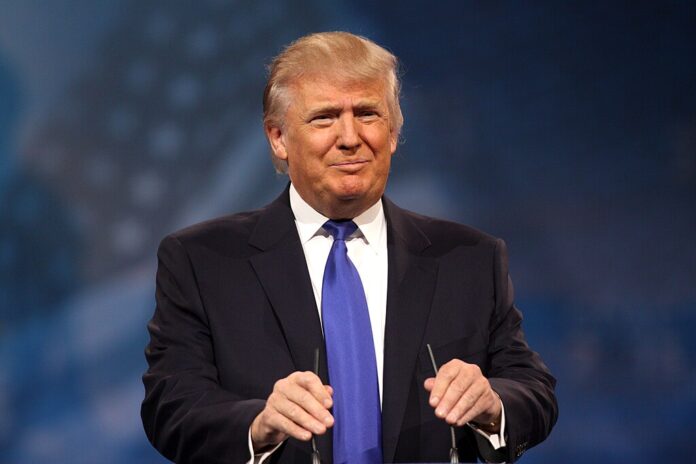Amid false claims and personal attacks, Trump announces a debate with Harris while expressing frustration over her campaign momentum
In a chaotic news conference at his Mar-a-Lago estate on Thursday, former President Donald Trump made headlines with a mix of erratic statements and confrontational rhetoric. The hour-long appearance, marked by false claims and personal attacks, culminated in Trump agreeing to debate Vice President Kamala Harris on September 10, reversing his previous stance on debate arrangements.
Trump’s conference was characterized by a series of controversial comments and boasts. He defended the January 6 Capitol rioters, calling their treatment “very unfair” and bragging about the size of the crowd at his rally that day, despite evidence to the contrary. He also gave a noncommittal response on whether he would restrict medication abortion, reigniting a contentious issue among Democrats.
Embed from Getty ImagesThe former president’s frustration with Harris’s campaign was evident throughout the event. He criticized the media’s coverage of her crowds and questioned why she had been campaigning more actively than he had. Trump’s criticisms extended to Harris’s campaign strategy, suggesting she was avoiding news conferences due to incompetence.
Despite the disjointed nature of his remarks, Trump’s announcement of a debate with Harris marked a significant shift. Previously, Trump had insisted on debating with a different network, but he now confirmed participation in the September 10 debate on ABC. Harris responded positively to the debate news, expressing her readiness to engage in the debate and discuss issues further.
Trump’s conference also touched on various other topics, including his past support for controversial figures and policies. He expressed discontent with current media narratives and rehashed old grievances, such as his claims about the size of his inauguration crowd and attacks on his former allies.
Analysis:
Political: Trump’s news conference represents an attempt to regain the spotlight as Harris’s campaign gains momentum. His agreement to debate Harris and his focus on media narratives indicate his strategic effort to challenge Harris’s rising profile. The debate will likely become a focal point in the campaign, providing both candidates with a significant platform to address voter concerns.
Social: Trump’s comments, including personal attacks and false claims, reflect ongoing divisions within American politics. His criticism of Harris and his defense of controversial actions could further polarize voters and influence public perception of both candidates. The debate will offer a chance for voters to see how each candidate handles contentious issues.
Racial: Trump’s remarks about Harris’s background and his broader commentary on race and identity could impact how voters perceive his attitudes towards diversity and inclusion. His personal attacks on Harris may be seen as a reflection of underlying racial and ethnic tensions.
Gender: Trump’s derogatory remarks about Harris’s capabilities and his comments on her identity highlight ongoing gender dynamics in politics. His questioning of her competence and campaign strategy could be interpreted as part of broader patterns of gender bias in political discourse.
Economic: Trump’s focus on economic issues during his campaign, despite the tumultuous nature of his news conference, underscores his strategy to frame the election around economic performance. His campaign continues to emphasize economic recovery as a key theme, aiming to resonate with voters concerned about inflation and economic stability.
